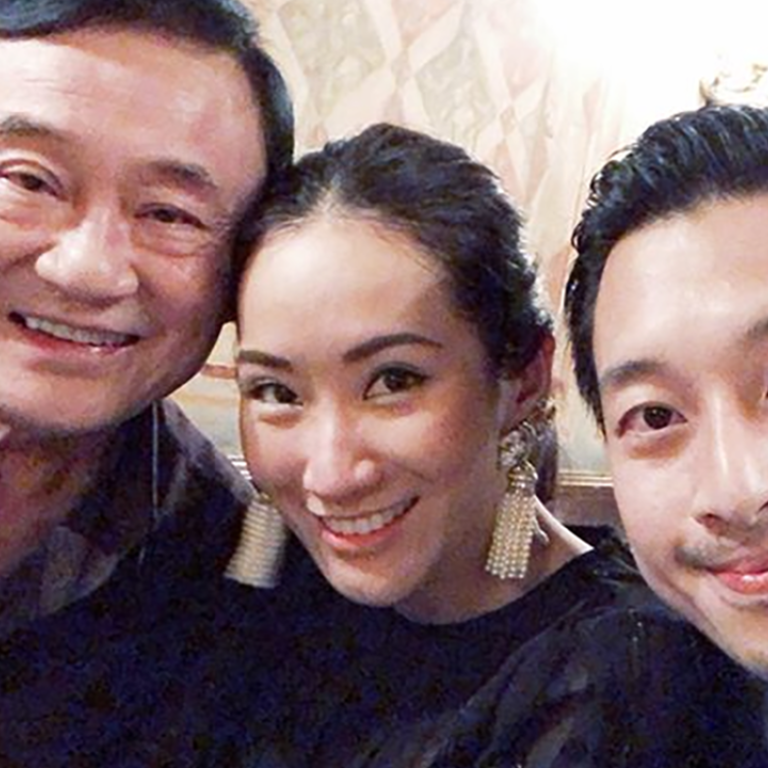
In Hong Kong and Singapore, Thaksin Shinawatra prepares his party for elections in Thailand
The self-exiled former prime minister and kingmaker looks ready to lead his Pheu Thai back to power from abroad – but the ruling junta has other plans as it seeks to retain control of the country at the polls
Post-coup elections are on the horizon in Thailand, and Thaksin Shinawatra, the fugitive former prime minister, appears raring to reprise his kingmaker role put on hold by the ruling junta.
Thaksin’s sister Yingluck, prime minister and Pheu Thai leader at the time of the 2014 coup, is also a fugitive from the country and was travelling with her brother.
Is time up for Thailand’s junta after Watchgate scandal?
Pheu Thai on Thursday downplayed the meetings as Lunar New Year courtesy calls, but political observers say they are the latest sign that Thaksin will remotely spearhead campaigning ahead of polls the ruling generals have promised to hold early next year.
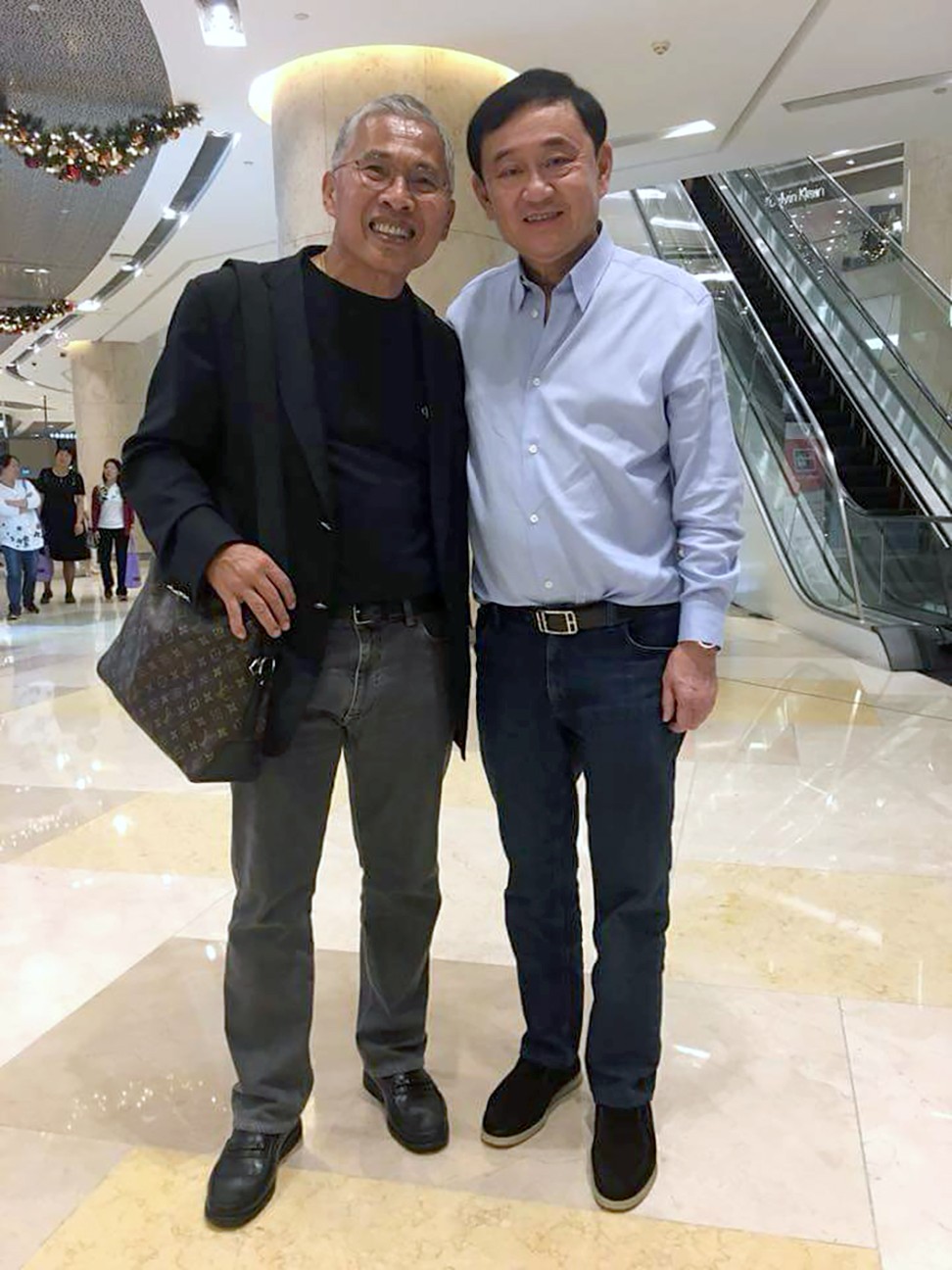
The “semi-public” nature of the meetings meanwhile suggests a degree of muscle-flexing by the still-popular Pheu Thai amid rising public pressure against the junta over corruption allegations, analysts say. The party is the latest iteration of a two-decade-old political mass movement moulded by Thaksin from among the country’s rural poor.
The meetings in Hong Kong and Singapore, publicised by Pheu Thai leaders who met Thaksin, are a means to show his rural base that the party is still “his party, and not the party of some run-of-the-mill politician”, said Patrick Jory, a Thai politics researcher at the University of Queensland in Australia.
Thaksin and Yingluck took in Japan and China earlier this month, where they reportedly also met loyalists.
“You have to understand how powerful the Thaksin ‘brand’ is among his supporters,” Jory said.
“For his working class supporters he is still seen as a hero, who delivered to those people who voted for him what he promised, until he was unjustly overthrown by the ‘elite’.”
As Thailand cremates King Bhumibol, can it keep lid on tensions?
Thaksin-linked parties triumphed in the six elections held since 2001, but are reviled by the country’s royalist and urban elite. Their dominance has coincided with a decade of political turmoil in the country. The pro-elite military staged two coups in that period – in 2006 and 2014.
Thaksin was prime minister from 2001 until his ousting in 2006, when he was also barred from politics and began his self-imposed exile. Two years later, he was sentenced in absentia to two years in prison for abuse of power – a ruling he said was politically motivated.
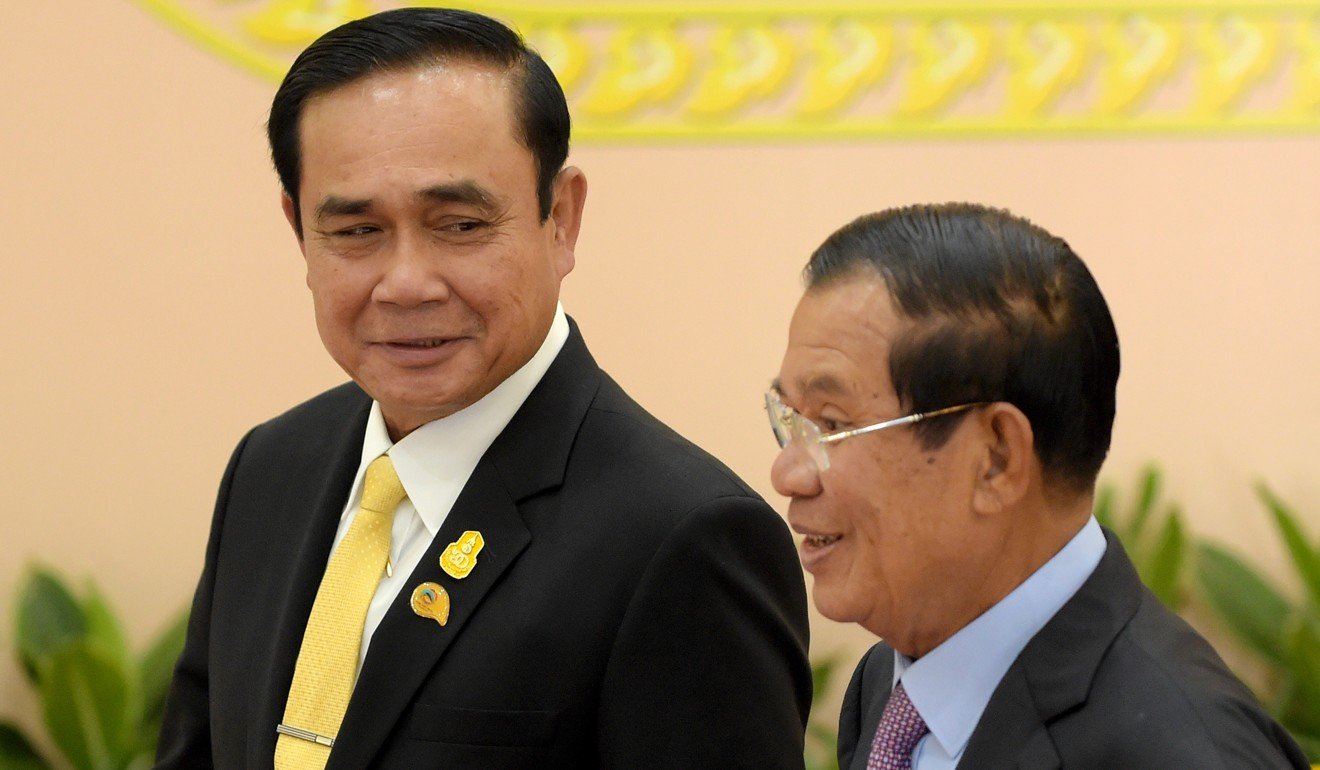
His brother-in-law Somchai Wongsawat briefly held the same position in 2008, while Yingluck was premier from 2011 until the 2014 coup. Yingluck was sentenced to five years in jail last year in relation to a failed rice subsidy scheme while she was prime minister.
Yingluck’s stint as premier saw her fugitive brother participate in decision-making via webcam from his base in London and Dubai.
Duncan McCargo, co-author of the book, The Thaksinization of Thailand, said despite his nearly decade-long exile Pheu Thai was “inextricably linked in the minds of voters with Thaksin”.
“He was not able to run himself in 2007 and 2011 but his influence remained immense. It’s basically his party,” the University of Leeds professor said.
Red Shirts, Yellow Shirts: will there ever be united colours of Thailand?
Another objective of Thaksin’s meet-and-greet with Pheu Thai leaders, analysts say, was to shore up internal unity amid growing fears that the junta is seeking to splinter the party ahead of the general election.
Prime Minister Prayuth Chan-ocha, who was the armed forces chief at the time of the 2014 coup, is believed to be keen on retaining power after the polls.
Watch: Military-ruled Thailand votes on new constitution
One way he can do so is by making use of election new rules enacted by the junta that allow a victorious party to appoint a non-elected prime minister.
Kevin Hewison, a veteran Thai politics observer, said Thaksin likely saw “some disintegration” in the Pheu Thai party.
The junta is attempting “to actively recruit former Pheu Thai MPs into the myriad of new parties being set up under the new rules of elections”, said the emeritus professor at the University of North Carolina at Chapel Hill.
Thaksin, who once dubbed himself the “CEO Prime Minister” for his no-nonsense, technocratic approach to power, is unlikely to take such manoeuvres lying down.
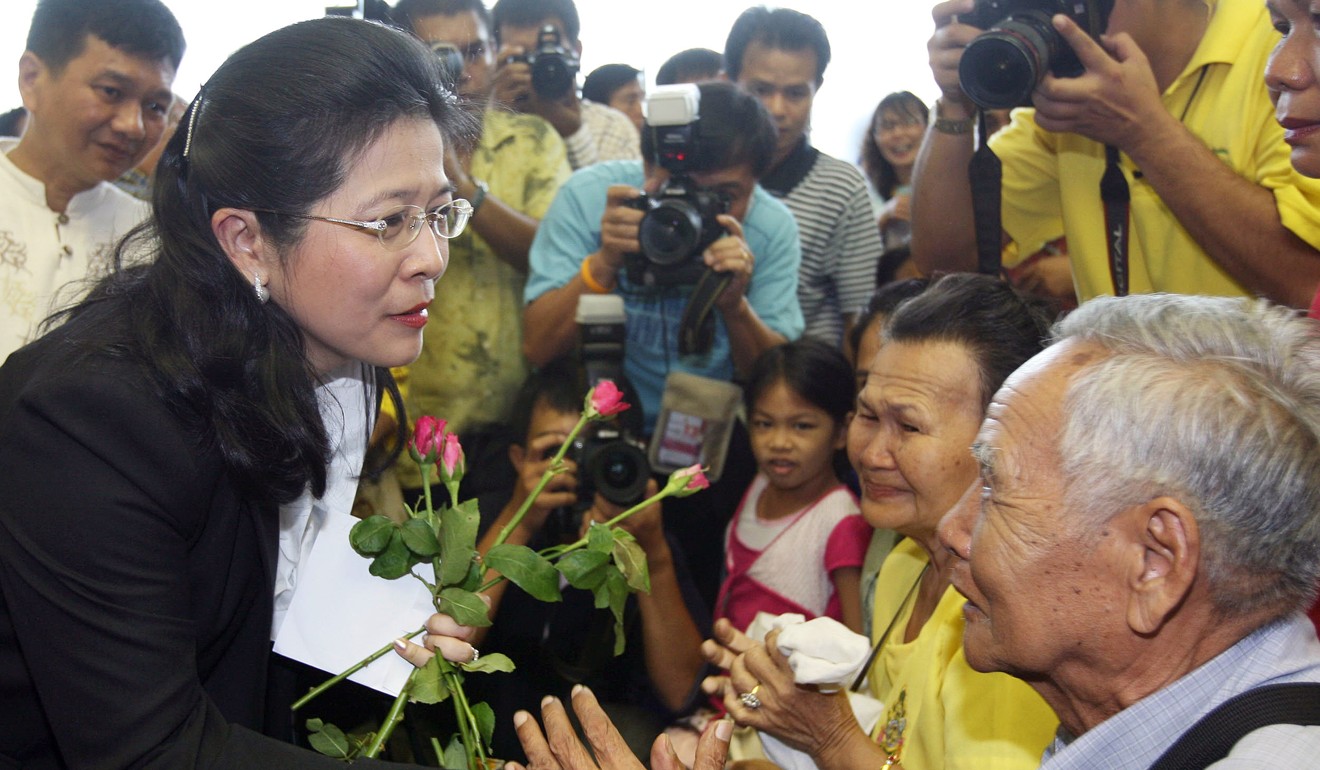
Thai media, citing Pheu Thai figures who met Thaksin, said the former premier urged them to stand by his long-time ally Sudarat Keyuraphan as party leader.
Sudarat and Thaksin both briefly served as ministers in the 1990s under a coalition government. Sudarat, 56, was one of the founding members of the Thai Rak Thai party, the first incarnation of the pro-Thaksin, rural-based political movement.
Don’t cry for me, Shinawatra: why Yingluck’s bad luck is good for Thailand
Thailand-based political scientist Paul Chambers said Sudarat’s roots in Bangkok could be a shot in the arm for Pheu Thai, helping the party cut into the support of the Democrat Party – the party of choice of the urban elite.
Chambers and other analysts say Sudarat is also favourable in Thaksin’s eyes because she maintains ties with the junta top brass including the second-in-command, Prawit Wongsuwon.
Those ties could prove critical as her political fate – and that of Pheu Thai – ultimately lies with whether the junta follows through with its promise to hold elections.
Jory, the University of Queensland lecturer, said the latest meetings are likely to signal to voters the waning clout of the military.
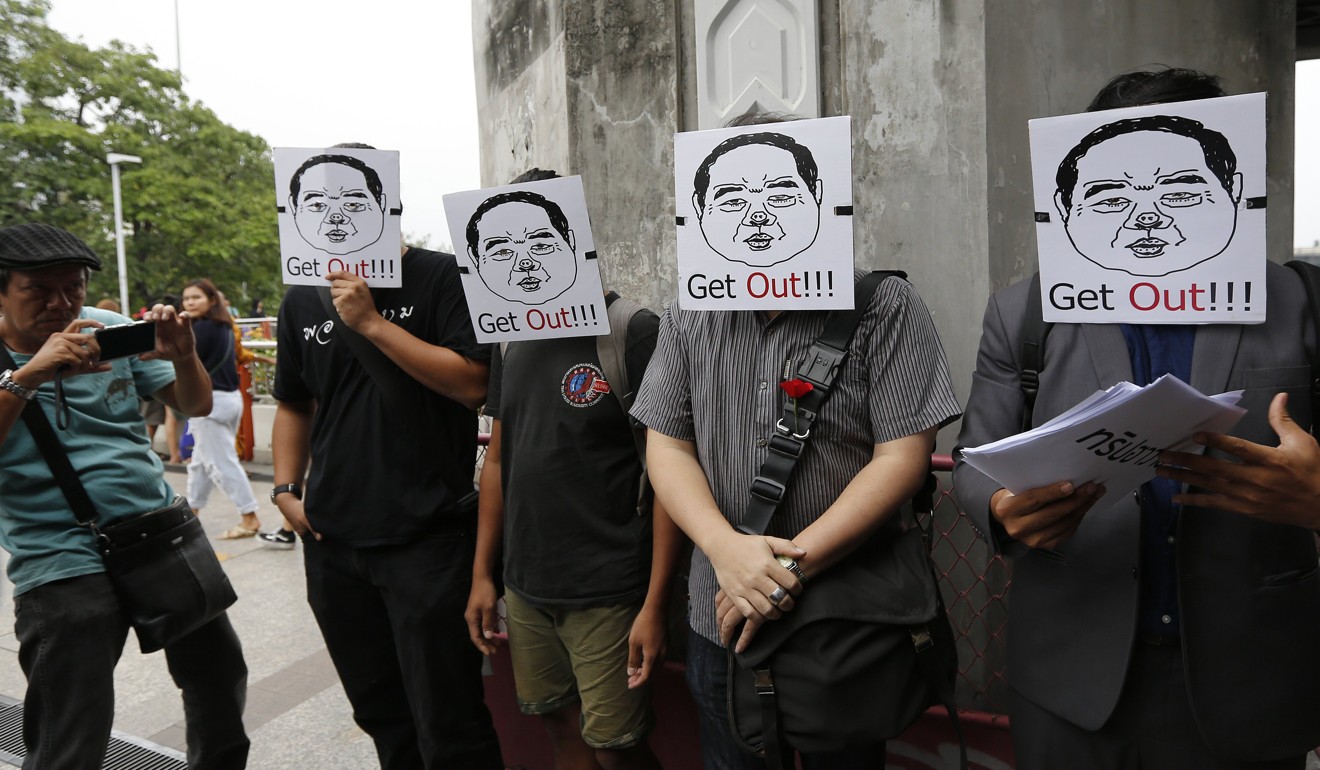
The meetings meanwhile have taken place despite the junta’s warnings that it is illegal for the fugitive Thaksin to have links or influence over domestic politics.
Pheu Thai’s acting secretary general Phumtham Wechayachai in a statement on Thursday said the meetings had nothing to do with the party’s political affairs.
But Jory said “the fact that Thaksin can move around freely and meet Pheu Thai politicians so easily reinforces the military’s growing impotence.” ■

